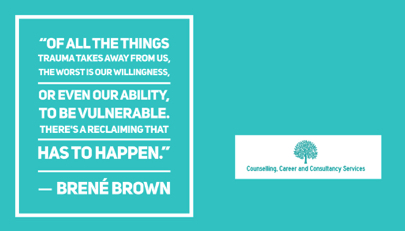For Online or Face-to-face
Individual, Couple, or Family Counselling, Treatment of Diagnosed Depression/Anxiety, Trauma and
other Conditions,
and/or Prayer/Spiritual Support with
Owen Robinson
MAASW (Adv. Accr)
BSW (Curtin) MA (Counselling)
BEd (Science) Grad. Dip. Management
Counsellor
Accredited Mental Heath Social Worker/Medicare Provider
Supervisor and Training Consultant
Open Arms (formerly Veterans & Veterans Families Counselling Service) Outreach Programme Counsellor
Department of Veterans Affairs Provider
Insurance Commission of WA Provider
Able to see members of Bupa, HCF and Teachers Health (plus UniHealth and Nurses and Midwives Health)
who have the appropriate level of cover
Listed as a Blue Knot Foundation Trauma-informed Service
For info Phone: 0408 890 887
(please allow one day for replies to messages)
NB Medicare rebates are available if you see a GP for a mental healthcare plan
Online options available
Signal (preferred secure phone app), Skype or Zoom options are available for online sessions.
Canning Vale Serviced Offices
Unit 15, 64 Bannister Road,
Canning Vale
Western Australia 6155
(NB the entrance is on the Canvale Road side of the complex)
Medicare Provider 442250DX
Mondays/Tuesdays/Wednesdays/Fridays 7.30am-5:00pm (online or face to face)
Thursdays
7.30-11.30am (online only)
11.30am-5.00pm (face to face)
For Appointments Phone/SMS 0408 890 887
To mail: PO Box 260
Maddington
WA 6989
To email: morehope@iinet.net.au
This is NOT an emergency service. For Western Australian mental health emergencies please contact the Mental Health Emergency Response Line on 1300 555 788
or
attend the nearest Emergency Department of a hospital.
Alternatively contact Lifeline on
13 11 14.
Helplines: (click here)
Other support services:
Kids Helpline: 1800 55 1800 - for 24/7 telephone counselling for young people 5-25 years
Suicide Callback Service: 1300 659 467 - for 24/7 telephone crisis support for people at-risk of suicide, carers and bereaved
MensLine Australia: 1300 78 99 78 - for 24/7 telephone and online support, information and referral services for men
Beyond Blue: 1300 22 4636 - for 24/7 telephone support and online chat 4pm - 10pm (AEST)
Meth Helpline : 1800 874 878 - The Meth Helpline is a free confidential telephone counselling, information and referral service for anyone concerned about their own or another person's meth use.
1800RESPECT - 1800 737 732 - 24 hour 7 days a week, confidential telephone and online support - 1800RESPECT is not only a support service for people affected by sexual assault, domestic and family violence. It is also an information and support service for family, friends, and frontline workers.
WA COVID-19 Hotline - Phone 13 COVID
Lifeline - Phone 13 11 14
MensLine - Phone 1300 789 978
Jobseekers Contact Line - Phone 132 850
Small business advice – Phone 133 140
Acknowledgement of sources of graphics used on this web site:
Permission given on 27 Nov 2016 by Danny Silk for #KYLO (Keep Your Love On) and lovingonpurpose.com;
Permission given on 27 Nov 2016 by Kris Vallotton for #KVM (Kris Vallotton Ministries).
EverWeb public domain images
Brett Jones Online Free Stock Photos: http://brentjonesonline.com/blog/blogging/where-to-find-free-stock-photos/
Marriage Counselling in Perth
Trauma Counselling in Perth
Family Counselling in Perth
Christian Counselling in Perth
Counselling for depression in Perth
Counselling for anxiety in Perth
Counsellor is sometimes misspelled as counselor, councelor, councellor or councillor and Counselling is sometimes spelled as counselin.,
Suburbs serviced include Shelley, Rossmoyne, Willetton, Parkwood, Ferndale, Bull Creek, Lynwood, Wilson, Cannington, Canning Vale, Leeming, Salter Point, Waterford, Karawara, Brentwood, Murdoch, Welshpool, Huntingdale, Victoria Park, Gosnells, Martin, Jandakot, Bibra Lake, Cockburn Central, South Perth, Melville, Samson, North Lake, Myaree, Alfred Cove, Rivervale, Burswood,Orange Grove, Belmont, Ascot, South Guildford, Guildford, Hazelmere, Woodbridge, Midvale, Swan View, Greenmount, Helena Valley, Maida Vale, Gooseberry Hill, Kalamunda, Lesmurdie, Walliston, Carmel, Bickley, Forrestfield, O'Connor, Piara Waters, Forrestdale, Treeby, Banjup, Seville Grove, Armadale, Camillo, Kelmscott, Mt Nasura, Mount Richon, Brookdale, Wuyong, Hilbert, Darling Downs, Wandi, Aubin Grove, Atwell, Success, Hamond Park, Oakford, Byford,Individual counselling anger management counselling marriage counselling couple counselling child counselling parenting counselling sexual abuse counselling, self-harma nd suicide counselling trauma counselling relationship counselling stress management Self esteem and personal development adolescent counselling

More Hope More Calm Get on Better
ABN 80 483 081 209
Relationship Research:
Marriage researcher John Gottman of the Gottman Institute found that 69% of conflicts involve perpetual or unresolvable problems even in successful marriages. Couples spend years and huge amounts of energy trying to change the other person, but significant disagreements are about values and different ways of seeing the world – things that don’t change. People in successful relationships know this and attempt to acknowledge and to live with their partner's differences. Not all things are wise to accept however.
---
The clip below describes key findings about the importance of relationship on physical and mental health. It synthesizes results from a 75 year longitudinal study of Harvard graduates, one of the most enduring studies that has been done on what makes people happy and thier lives productive. Recently, George Vaillant, who directed the study for more than three decades published a summation of the insights the study has yielded. Among them:
• Alcohol abuse was the main cause of divorce between the Grant Study men and their wives; it was strongly correlated with neurosis and depression (which tended to follow alcohol abuse, rather than precede it); and—together with associated cigarette smoking—it was the single greatest contributor to their early morbidity and death.
• Late in their professional lives, the men’s boyhood relationships with their mothers—but not with their fathers—were associated with effectiveness at work.
• On the other hand, warm childhood relations with fathers correlated with lower rates of adult anxiety, greater enjoyment of vacations, and increased “life satisfaction” at age 75.
• Vaillant’s key takeaway, in his own words: “The seventy-five years and twenty million dollars expended on the Grant Study points … to a straightforward five-word conclusion: ‘Happiness is love. Full stop.’ ”
Source: www.theatlantic.com/magazine/archive/2013/05/thanks-mom/309287/
Did you know that one of the most popular TED talks of all time was done by Houston University social work professor Brené Brown? In a funny, insightful and poignant presentation Professor Brown talks about her research on the power of vulnerability and the impact of shame on relationship. This research identifies vulnerability as a core value in healthy relationships.
Brene Brown went on to do a second TED talks presentation about her research that was amazing in a similar way to the first, where she dares greatly to demonstrate her own vulnerability.
---
In this 6 minute clip from an interview with Brene Brown she describes what her research data revealed about boundaries in relationships. (below). For the full interview click here.
Gottman Institute did research to find behaviour most likely to predict divorce. Not only did they identify the 4 behaviours that do the most damage, they called them the '4 horsemen of the apocalypse.'
Gottman Institute defines the 4 horsemen and proposes evidence-based antidotes:
Criticism <- attacks the character of the recipient instead of focussing on a specific behaviour
Antidote -> an I statement that expresses needs or preferences
Contempt <- an expression of superiority e.g. sneering, sarcasm, eye-rolling, name-calling, cynicism, mockery, hostile humour (the greatest predictor of relationship failure)
Antidote -> treat each other with respect and cultivate a culture of gratitude in the relationship
Defensiveness <- self-protecting with ‘righteous’ indignation or playing the victim; an underhanded way of blaming your partner and avoiding responsibility for the conflict
Antidote -> accept responsibility even if only for part of the conflict
Stonewalling <- the listener withdraws from the conversation without resolving anything;
Antidote -> break for at least 20 minutes and regain calmness, then return to the conversation
(for more detail click here).
For a more comprehensive list of the factors in their research data that predict divorce visit the following article: The 6 Things that Predict Divorce. Using the 'name-it-to-tame-it' principle this information may start couples who are in trouble to start heading in a better direction. If you are ready to go beyond a 'start' and book for counselling with an experienced counsellor contact details for Owen are on the right of this page (above).
---
Gottman Institute identified 7 principles that improve a marriage. Here is a summary of the findings in a 7 minute and 7 second video.
Dr Stan Tatkin explains why relationships can be so hard using brain-science in this TEDx Talks clip.
Here is a clip Skills for Healthy Romantic Relationships from TEDxSBU.
In this 2017 TED event Susan Pinker, developmental psychologist, reveals how in-person social interactions are not only necessary for human happiness but could also be a key to health and longevity.
Gottman Institute has done research about the value of bids of connection. This animation explains why they make all the difference in couple relationships.
Also John Gottman of Gottman Institute explains couple research in this TED Talk.

